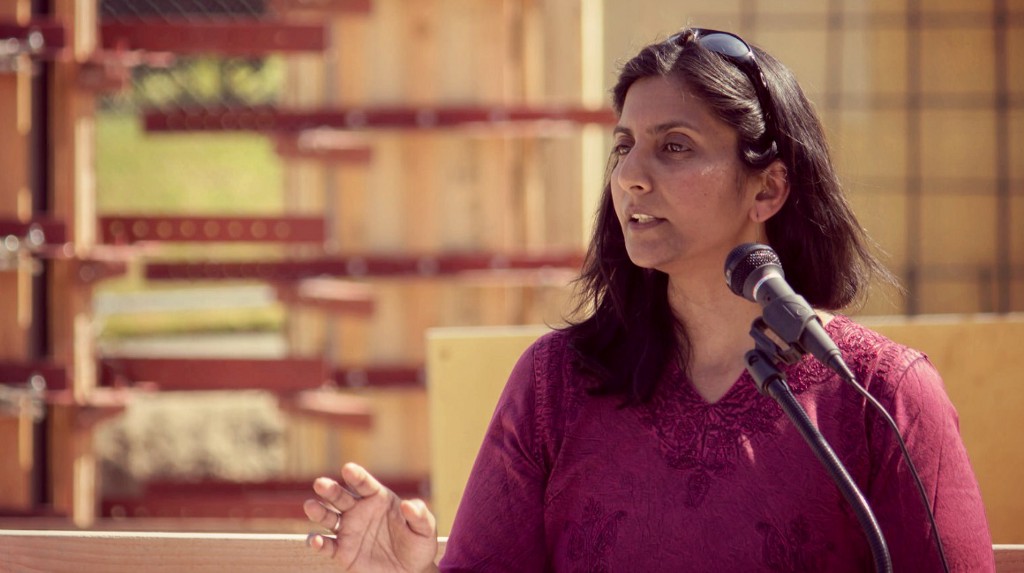

“To belittle our votes and policy considerations as ‘emotional and naïve’ is not only an insult to women, it impacts our community. The misogynistic backlash to our vote is an attempt to communicate a dangerous message: Elected women in Seattle do not deserve the respect necessary to make tough decisions without the fear of violence and racially and sexually charged retaliation….There are women across our city and nation who are abused, insulted, belittled and exploited at home or work. Their stories rarely make news. We stand in solidarity with them.”
Last week, Seattle’s City Council had a 5–4 split vote that came out against selling land to accommodate a new NBA arena. What ensued can only be described as the most vicious form of trolling. And it had nothing to do with politics, land use, or even sports — and everything to do with the fact that the five councilmembers who came out against the proposal were women.
It’s not surprising that sports fans railed against those who voted nay — but the complaints were undeniably gendered, and particularly brutal in nature. After the vote, trolls took to social media to call the women bitches and hags, while berating them for letting “emotion beat out logic,” not understanding sports . . . and worse. One lawyer emailed the politicians to rant: “As women, I understand that you spend a lot of your time trying to please others (mostly on your knees) but I can only hope that you each find ways to quickly and painfully end yourselves.”
“There’s no question that women in leadership positions and women in general face discrimination and harassment . . . Paternalistic attitudes and condescension,” City Councilmember Kshama Sawant tells me. “Not only in the workplace, but in other social situations.”
But Sawant was clear that she doesn’t want to focus on the attacks she’s faced, and rather on how it’s even more damaging for everyday women who are “voiceless.” “I recognize that for me, as a woman, as an immigrant, as a woman of color, there’s a lot to choose to attack, but I’m more focused on the widespread phenomenon of misogyny women face that needs to change.”
Sawant says that to change these dynamics, we must shift the focus away from from the identities of politicians and to their policy stances instead — which is why it was even more troubling to see Sawant and her female counterparts mercilessly attacked for voting in a manner that’s consistent with their past policy stances.

What’s commendable is that the women didn’t ignore this by succumbing to the “develop a thicker skin” narrative that women are routinely fed. In fact, the five women — three of whom are women of color — responded with this eloquently-written Op-Ed in The Seattle Times, in which they stated:
Perfectly put. And yet, in every single facet of our lives, a woman’s competence and leadership is deeply criticized through brutal online harassment when she deigns to take a stance. Why do we tolerate the male political candidate who routinely disrespects entire groups of people — Muslims, women, immigrants — while viciously criticizing his female counterpart for everything, including her femininity, appearance, qualifications, sex life, and marriage? Former Reddit CEO Ellen Pao received death and rape threats for trying to combat online harassment at her company, while Twitter CEO Dick Costolo was lauded in the media for admitting his failure in dealing with trolls on the social media network.
In the era of “lean in” and the looming possibility of our first female President, we are no closer to achieving gender parity than we were a decade ago. In fact, the message has become even more dangerous now: We tell women to shoot for leadership positions and boldly share our opinions, all the while inserting the caveat: “But be prepared to be called names no one would say to your face and develop a ‘thick skin’ if you disagree with a man.”
The pervasive logic seems to be that women should change themselves, by either being more agreeable or putting up with this savagery. The onus is on them to grin and endure the abuse, rather than on our culture to engage in a nuanced conversation about how damaging trolling is and what solutions might exist. The idea that women should have to pay a high price for expressing an unpopular opinion is akin to telling women to cover up if they don’t want to be sexually assaulted. Neither address the root cause of the problem.
Last week I was at a nonprofit committee meeting on developing programs to get more college-age women excited about a career in public office. As an icebreaker, each of us committee members had to identify what had stopped us from pursuing a public career as young women.
When it was my turn, I talked about how not seeing any women of color as leaders in the Singapore I grew up in was a huge deterrent to me feeling qualified to one day run for public office. I also said that seeing the political rise of women of color like Kshama Sawant and Pramila Jayapal in Seattle had recently renewed my childhood political aspirations.
But now I realize — for women vying for public leadership, building the experience to get elected is, frankly, a small part of the equation. The real challenge comes in not only knocking out male opponents, but somehow keeping your sanity and dignity in the face of the most hateful vitriol you’ll likely ever encounter — that and the exhausting task of continually having to prove your competence for no other reason than you’re female. As a woman of color, I’m not sure I’m ready for it.
How can I advocate for more young women to pursue a seat in public office, when it feels as though I’m asking them to enter a warzone where the opposing force has already won?
***
Lead Image: Kshama Sawant / Seattle City Council

